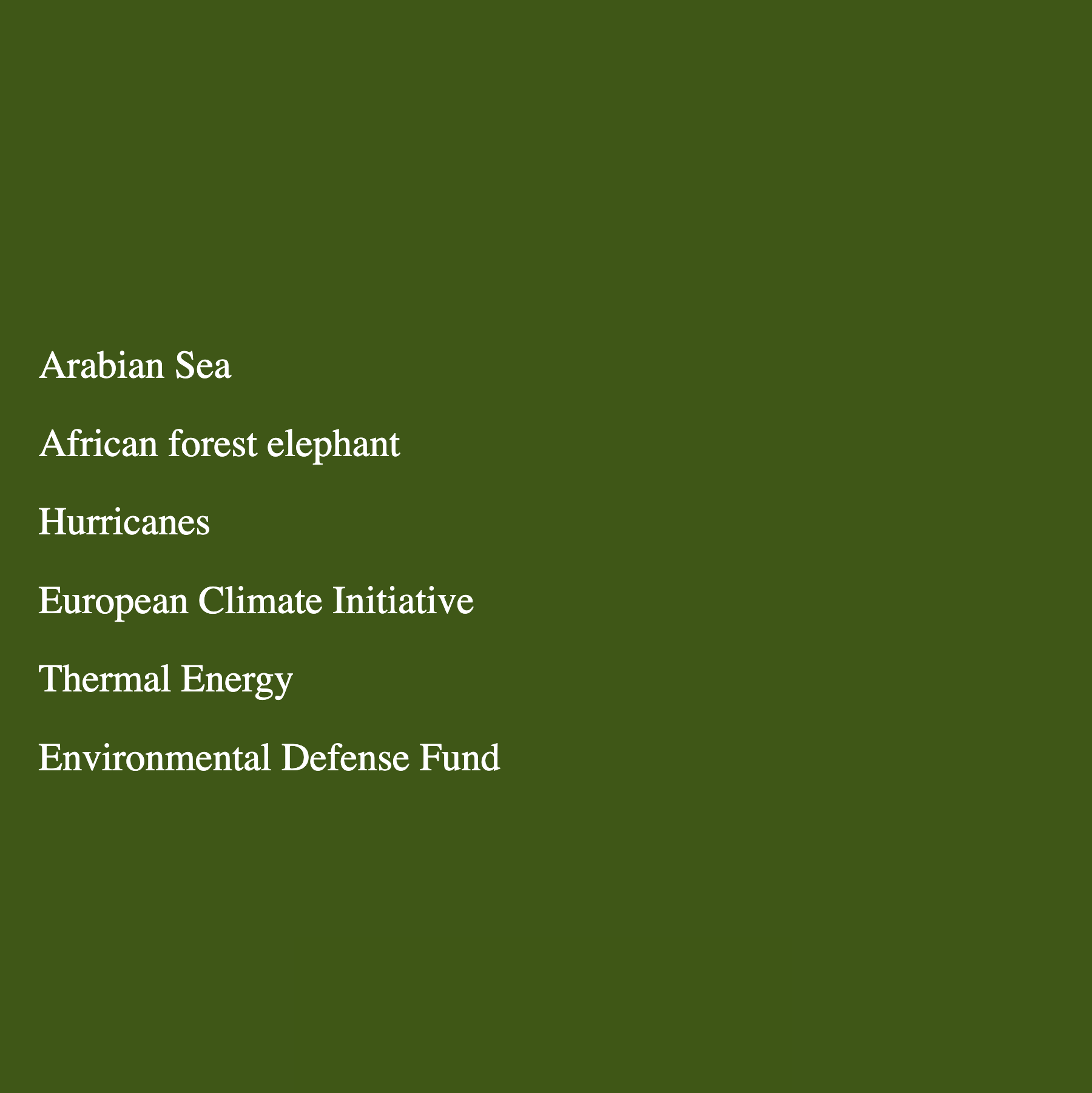Title: "Navigating the Cross-Currents: Thermal Energy from Arabian Sea Hurricanes, the Plight of the African Forest Elephant, and the Global Response of the European Climate Initiative and Environmental Defense Fund"
In the global pursuit of renewable energy, the Arabian Sea offers significant untapped potential. The cyclical, powerful hurricanes that characterize this body of water generate vast amounts of thermal energy that can be converted into electricity. However, harnessing this energy could entail substantial environmental consequences, particularly concerning the delicate balance of the African forest elephant's ecosystem. This situation calls for careful intervention and collaboration from organizations like the European Climate Initiative (ECI) and the Environmental Defense Fund (EDF).
These hurricanes' immense power comes from the heat stored in the sea. Sea surface temperatures act as a key driving force for hurricane development, and a warmer surface can lead to more energetic storms. Consequently, the Arabian Sea, with its consistently warm temperatures, is a potential gold mine for thermal energy. However, converting this energy into a usable form—through technologies such as Ocean Thermal Energy Conversion (OTEC)—poses a significant challenge.
The pursuit of this vast energy source in the Arabian Sea is not without potential environmental risks, however. This region is connected to the African continent via monsoon wind patterns, which play a critical role in determining rainfall distribution across the landmass. Any significant changes in the temperature of the Arabian Sea could potentially disrupt these wind patterns and, consequently, rainfall distribution in Africa. This could have severe implications for Africa's delicate ecosystems, including those of the African forest elephant, a keystone species in African rainforests.
The African forest elephant plays a crucial role in maintaining the health of the forests it inhabits by promoting plant diversity through its feeding habits and aiding seed dispersal. However, these elephants are highly sensitive to changes in their environment, particularly to alterations in rainfall patterns. A drastic shift in the monsoon winds, and consequently the rainforest's rainfall, due to a large-scale harnessing of the Arabian Sea's thermal energy could jeopardize the elephants' survival, impacting forest health and biodiversity.
In this complex scenario, the ECI and the EDF have pivotal roles to play. The ECI, primarily concerned with mitigating climate change in Europe, has an opportunity to broaden its perspective. By funding and coordinating research into the potential environmental impacts of harnessing thermal energy from the Arabian Sea, the ECI can help ensure that the pursuit of renewable energy doesn't unwittingly disrupt delicate ecosystems.
Similarly, the EDF, a U.S.-based nonprofit environmental advocacy group, can use its influence to foster a science-based, ecologically sound approach to harnessing thermal energy. By working closely with researchers, policymakers, and energy companies, the EDF can help develop best practices for the sustainable and responsible use of ocean thermal energy.
Harnessing the thermal energy from hurricanes in the Arabian Sea represents an exciting frontier in renewable energy. However, it's essential to balance the need for new energy sources with the protection of critical ecosystems, like those of the African forest elephant. Organizations such as the ECI and EDF have a crucial role in ensuring that this balance is achieved, fostering a future where sustainable energy and environmental protection go hand in hand.
